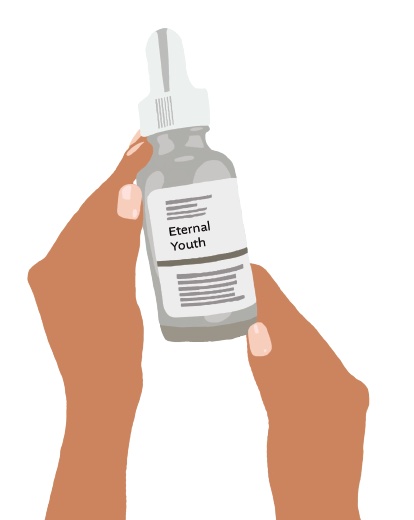The Importance, or lack thereof, of APs
When deciding what classes to take in high school, APs are often heralded as an essential part of the high school experience. Is all the hype around these classes and tests deserved or are they simply overrated?
April 7, 2021
In the fast-paced world of high school and college prep, one can easily get buried under the expectations to succeed.
Whether it is a perfect 4.0 GPA or an impeccable assortment of extracurriculars, students must have it all to get into a “good college” and “succeed.”
In the midst of all this are AP classes—almost every freshman knows of them and every senior knows them well, possibly too well.
These Advanced Placement courses are a major tenant in almost every high school student’s career, but what are they? Why does everyone take them? And how important are they really?
AP classes come from the College Board, the company that creates and administers the SAT.
They are described as “college-level classes designed for top-achieving high school students,” with a cumulative test at the end of the year according to standardized test-prep company, Kaplan.
An exam that, if a student passes, can qualify for college credit. This is often cited as one of the major benefits of taking AP classes — getting college credit from high test scores and getting a head start on learning in college.
Qualifying for this credit places students out of introductory classes, starts students in more advanced classes when they get to college, putting them in better placement for optimal education.
AP classes not only give students a head start on the actual content in the higher education system, but also help prepare students for the workload of college.
These classes are seen as equivalent to, in workload and rigor, an introductory college course.
Because of the test at the end of the year, these classes move at a faster pace, cover more material than regular classes, and sometimes require independent work like research and analysis.
“AP classes have much higher expectations as far as homework and assignments as well as difficult material,” junior Sofia Anderson said.
APs can prove helpful for getting a feel of what school would look like in college.
Also, often noted as a benefit of APs, they give your GPA a boost where getting a B in an AP class is often a better choice than getting an A in a regular course.
This is because the grades in these classes are measured on a 5.0 scale whereas regular classes are measured on a 4.0 scale, according to the Princeton Review. A higher GPA can prove crucial to college acceptance.
These classes also allow students to study or discover what they are passionate about. Taking AP Biology or AP Chemistry can open the door to a world of science for students who favor STEM while classes like AP Literature or AP Language would work better for students who prefer humanities. “[The classes make] you definitely learn a lot about yourself as a student,” junior Noah Kamps said.
Many say that AP classes signal to colleges that you are a capable, intellectual, and ambitious student. They signal to the admissions office of colleges that you challenged yourself in high school.
They are ultimatley used as a way to compare students nationally because “one school’s A on a transcript might be a C at another place,” Laguna Blanca college counselor Matt Struckmeyer said. “[T]he AP lets colleges make an ‘apples to apples’ comparison,” Struckmeyer continued.
Additionally, with the recent change in SAT and ACT requirements, AP scores could become more important for students. Often, these AP tests are comparable to SAT subject tests by being a small part of a bigger picture of a college application.
With many colleges being SAT-score-optional and the College Board completely omitting subject tests, AP scores could carry a larger weight in college applications.
They could become the new SAT—a standardized test score that provides a benchmark against which to compare students to their peers. “I’d say they’re definitely weighted a bit more [because of COVID-19], especially if the student didn’t submit SAT or ACT’s. They are a national test, the same for students everywhere, and they validate, or invalidate, what’s on a transcript,” Struckmeyer said.
But, when talking about APs it would be remiss to not mention the drawbacks to the classes.
Student stress and pressure are always in the conversation of whether these classes should be so crucial to high school students. The intense workload can often overwhelm students and lead to serious mental health struggles.
Anxiety from worry about an overwhelming amount of work or even depression from being stretched too thin is common. “AP classes are definitely a learning experience. At first, The workload is fairly shocking and can be very draining,” Kamps said.
Not to mention the physical faults that come with having these extreme schedules. Sleep, proper self-care, exercise, or even nourishment are some of the first things to go with the time-consuming work that students encounter in the world of advanced placement classes.
“I find myself struggling to keep up with everything across all my classes and it is even more stressful when I remember that many of my classes involve a cumulative AP test. The AP classes tend to move at a much faster pace that is very hard to keep up with and I am often having to stay up late cramming for a test or desperately trying to reach the word count for an essay,” Anderson said.
Students at Laguna Blanca are no strangers to academic rigor and competition, and so, many take multiple AP courses, starting as early as freshman or sophomore year.
Junior Catie Fristoe took AP Chemistry sophmore year. “[It] gave me a lot of work, but thinking back to it, it also taught me how to study for tests in the best way and get homework done ahead of time before taking more APs junior year,” Fristoe said.
In an effort to get ahead of peers, many students just take the most APs possible to get the most possible benefits out of the system. Taking AP Literature, AP US History, AP Calculus, AP Physics, and AP Spanish for example, loading up on these rigorous classes and getting overwhelmed with the realities of the workloads.
Students take these classes to reap all their benefits but are left investing time into subjects that they may not be passionate or excited about.
Laguna has put in measures to ensure that students don’t spread themselves too thin with their AP choices by limiting students to only 4 classes and including a schedule with predicted time commitments for classes during course registration.
Despite these strategies, students can still become inundated with the work and commitments of these classes to keep ahead of the competitive college landscape. “[T]here’s no ‘right’ number of APs,” but “at Laguna they are pretty darn important if a student wants to attend an ultra-selective institution,” Struckmeyer mentioned.
The opinion of many educators and experts is to take as many APs as possible but to be cautious of their daunting nature.
Possible in this sense meaning taking all the classes that genuinely interest you, as many classes that you can realistically handle keeping in mind your mental and physical health, and as many classes as you deem fit for your interest in school or college.
“Students are viewed in categories. If a student excels in English and the humanities, those AP classes are important. Such a student wouldn’t be expected to take every science AP,” Struckmeyer mentioned.
They have many benefits but those benefits quickly can and will be offset by taking these courses in abundance. It’s crucial to remember that you will probably get into a college without taking any APs.
You won’t get into Harvard or Yale but you will get into a college and even a good one at that. Harvard and Yale don’t fit everyone, not all of the famous uber-selective colleges fit everyone, and every student shouldn’t dream of super-selective schools because super-selective schools won’t work for every student.
When making decisions about AP classes or your high school experience as a whole, you need to assess what kind of person you are and what kind of future you want and what kind of college you would work best at.
If you like school and learning, a more rigorous school may work best for you, but, if you don’t want the academic challenge that comes with these “brand name” schools, another school would work better.
You don’t even necessarily have to go to college if it doesn’t work for your goals. You don’t have to be intensely focused on school if it means sacrificing your mental and physical health.
If you do what is right for you, what you enjoy, colleges will notice and, more importantly, you will be so much happier.
Colleges value students who take a challenging amount of AP classes but also value students who take tough classes that interest them.
“APs–at Laguna–show how much rigor you can handle from the school’s most experienced teachers; they are Laguna’s topmost courses. But it’s also important to take classes that align with your goals and values. These aren’t mutually exclusive aims,” Struckmeyer said.

















